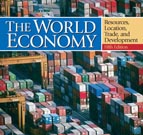Political turmoil threatens Thailand's credit rating
 Bangkok - Thailand's ongoing political crisis has yet to affect its sovereign credit rating but it could do so if there is no end to the turmoil in sight, Fitch Ratings' chief Asia analyst said Wednesday.
Bangkok - Thailand's ongoing political crisis has yet to affect its sovereign credit rating but it could do so if there is no end to the turmoil in sight, Fitch Ratings' chief Asia analyst said Wednesday.
"The credit fundamentals of Thailand are still sound, but we are getting concerned about the political risk in political developments because it's just been going on so long," said James McCormack, head of Asia Sovereigns at Fitch Ratings.
"Our concern is that the lack of political leadership leads to a lack of economic policy, and that as the political situation stagnates the economic policy also stagnates," McCormack told a conference in Bangkok.
Despite weeks of political turmoil in Thailand, Fitch has kept the country's sovereign rating at BBB+, a median risk rating that includes other countries such as Hungary, Mexico, South Africa, Latvia and Russia.
Thailand's strong fiscal position, with government debt only slightly above 20 per cent of Gross Domestic Product (GDP) and as one of Asia's few net external creditors, is the main reason Fitch has yet to downgrade its rating, said McCormack.
The Thai economy in the first half of this year was bolstered by a strong export performance and healthy consumer demand, thanks in part to a sharp rise in prices on the country's traditional commodity crops such as rice, tapioca, rubber, palm oil and sugar.
But Fitch is expecting the economy to slow down in the second quarter of 2008 as a result of signs of recession in the US and other leading world economies, and lowering consumer and investor confidence in Thailand as a result of the ongoing political turmoil.
Fitch Ratings forecast that Thailand's GDP will grow 4.6 per cent in 2008, compared with 4.8 per cent last year.
Thailand has suffered from a highly volatile political scene for the past three years, starting with street protests against former prime minister Thaksin Shinawatra that ended in a military coup on September 19, 2006.
After being under a military-appointed government for 17 months, democracy was restored with a general election on December 23, 2007, but the polls failed to end a deep societal divide between those who support Thaksin, whose populist policies earned him the backing of the rural poor, and those who condemned him as a dictator and corrupt politician.
Street protests erupted again in May against the current government of prime minister Samak Sundaravej on August 26, calling for his resignation as a proxy of Thaksin.
The protestors, led by the reactionary People's Alliance for Democracy (PAD), seized Government House on August 26 and have held it hostage since.
Samak, although he has refused to resign, lost his job Tuesday after the Constitution Court found him guilty of moonlighting as a TV culinary host, a breach of the current charter.
But Samak may be reappointed prime minister by Friday if his People Power Party back him to retake the post.
The highly volatile political situation has left many analysts confused about the country's political direction.
"I think what we would like to see in Thailand is some eventual resolution," said McCormack. "Normally, when there is a political dynamic like this we'll see two steps forward and one step back. Here it's one step forward, one back so nothing seems to change." (dpa)